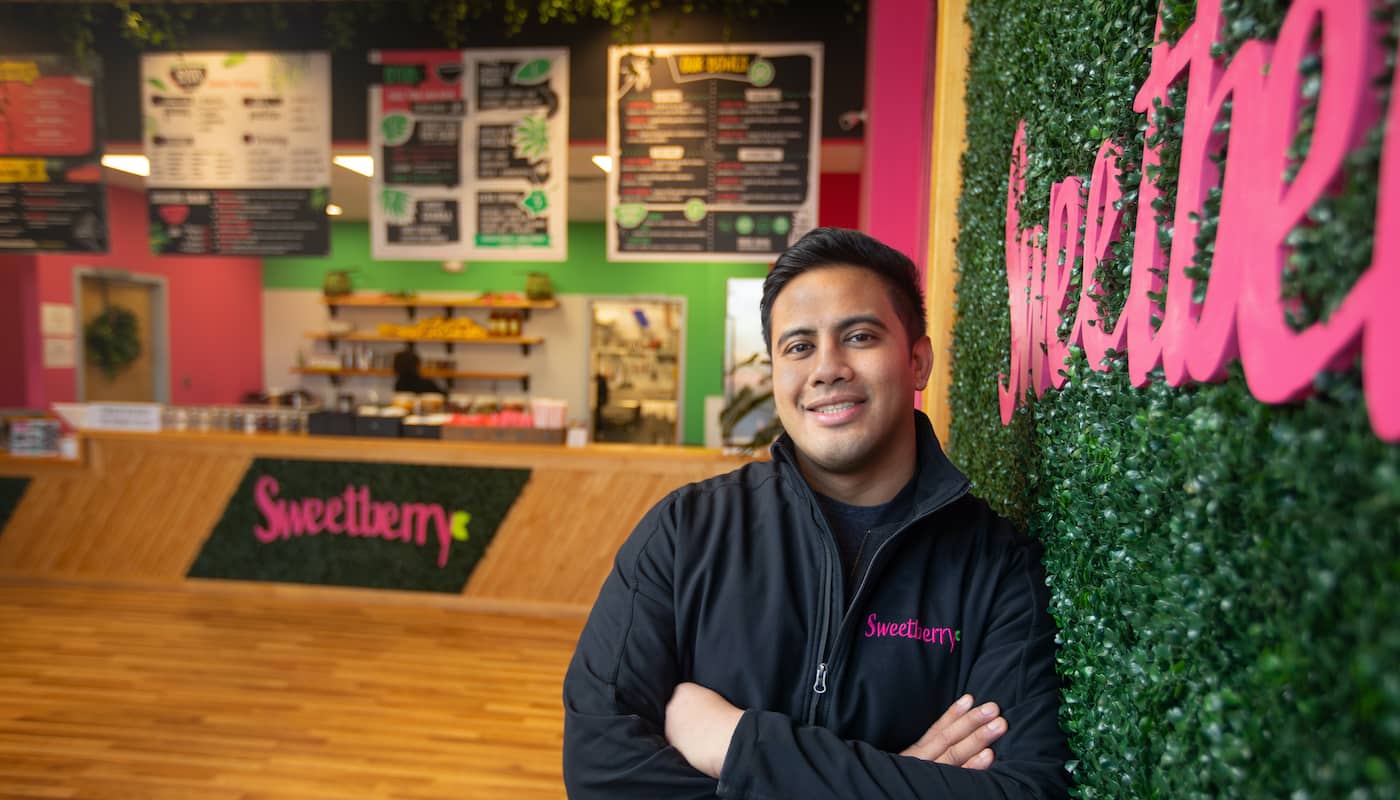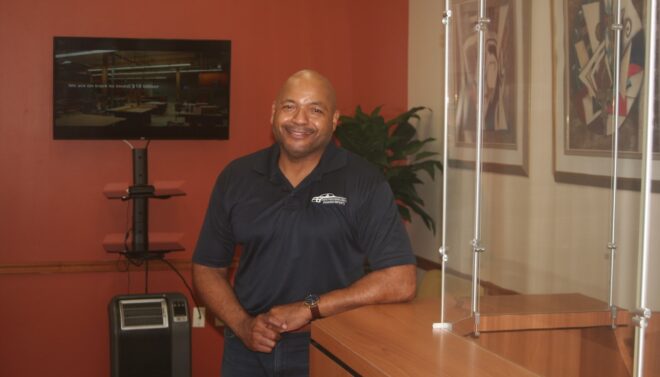Sweetberry
Editorial Team
6 min read
Our Meet the Merchant series features Q&As with real-world Clover merchants. In today’s installment, we talk to Desi Saran, Founder and CEO of Sweetberry, which offers fast, delicious, health-conscious fare. Saran started Sweetberry in New Jersey and quickly expanded the business into a multi-state franchise in just two years. He shares his strategy for mixing menu trends with tried and true favorites, how the open-source technology of Clover helps his business, and how he’s adapting to stay afloat during the pandemic.
Clover: Hi Desi. Can you tell us about your background and how Sweetberry came to be?
Desi Saran: Sweetberry is actually my second restaurant chain. I started it after I was bought out of my previous company. With Sweetberry, our mission is to bring healthy food and good vibes to cities around the U.S. I wanted it to be more than just açai and smoothies, so we assembled a versatile menu with wraps, salads, and now poke bowls. We’re based in New Jersey and in 2018, we opened 12 corporate stores. We also have six franchises that have opened in Florida, Chicago, South Carolina, North Carolina, Virginia, and Pennsylvania. This all happened in the last two years, so it was really rapid growth.
The goal was to build a foundation and a strong Sweetberry base quickly. I knew that if we had a dozen or so stores going into the second year, we could attract a lot of franchise interest. In 2019, we probably had over 3,000 franchise leads come in. I’m very picky, so I only awarded six across several states. At the beginning of this year, we had a potential deal in the Middle East, but obviously everything has come to a standstill with COVID. We hope to continue opening more locations around the U.S., and even internationally in the next year.
Clover: How did you create your menu?
Saran: We saw a huge rise in popularity of açai bowls around five or six years ago here in New Jersey, and we built the business off of that. We noticed that a lot of trends come from the West Coast. Açai has been popular around in California for probably two decades and finally made its way here, with poke coming right behind it. But I knew that I didn’t want to just focus on açai, because it might just be a trend, like frozen yogurt was 10 or 15 years ago.So, we built an entire healthy brand around it, including items that have proven staying power. People will always eat wraps, sandwiches, and salads.
There are so many items to choose from now in this healthy, fast-casual sector, which is growing quickly. When we decided to launch poke, we looked at a lot of trends. Poke was popular in L.A., and we saw some of the big brands, like Sweetfin and Poke Works, coming to New York City. But there wasn’t a big poke player in New Jersey, so we decided to launch that product, and it’s been a big hit.
Clover: What strategies have you used to build popularity and grow your client base?
Saran: Every city we’ve opened in is different. We have thrown events, including a grand opening, for every single location. We did a lot of social media and online advertising through Instagram, Facebook, and Google. Even advertising with Waze, the navigation app, worked really well for us, believe it or not. And once we opened, people started talking about it and bringing their friends in, so it’s a lot of word of mouth too.
We use a great loyalty platform called TapMango which integrates with Clover. It’s all encompassing and shows you all your rewards. TapMango sped up the launch of online ordering in response to the pandemic, which has been huge for us. Now I have a complete omni-channel for my customers, where they can order online through the app and get all their rewards points. The integration works very well with Clover.

Clover: Why did you choose Clover as your POS?
Saran: Clover was the big player when I was searching for a restaurant point of sale around six years ago, for my previous company. I really like how user-friendly it is. As I looked at some of these other points of sale, their software seemed antiquated, like they were from the 1980s. Clover’s interface is easy to use, increasingly so as we’ve trained more staff over time. Everyone picks it up as they’re using it and can learn it within an hour.
All the digital tools we choose to run our business have to interconnect. So I especially appreciate Clover’s open integration for third-party platforms, with apps that you can install. Clover is one part of our software stack; we also use TapMango, Homebase, and Davo, which all integrate with Clover. You have to be able to use all different types of tech, and it all has to play nicely and communicate. That’s a big thing for me with Clover.
Clover: How have you been managing through the pandemic, especially with Sweetberry locations in different states?
Saran: It’s definitely tough. When the pandemic started in March, we immediately closed down 13 locations temporarily. That was a shock. Like most restaurants, our sales dropped about 80% within a few days. We kept our franchises open and received some money from the government stimulus and loan programs. We started reopening most of our locations in June, although we’ve left a few shuttered for the time being. We have a pretty good process now for monitoring the restrictions in different states and implementing changes pretty swiftly.
COVID has thrown a wrench into everything, and it changes day by day. It has definitely changed how we do business. We’ve pivoted to online orders and takeout, which I think is where the whole industry was going anyway. I have a couple of locations that have increased year over year, others have lost 50% of their revenue where residents are more conservative about going out. Overall, we’re down just like every business, I would say by 20 to 25%. Online orders and mobile pickups are about 40% of our business, delivery is probably another 40%. “Dine in” is 20%, but that’s just what we are calling it when guests order in-store and take it to go.
Clover: Can you share any advice for other businesses weathering these challenges?
Saran: Stay strong, keep fighting, pivot, and adapt to everything. We’re entrepreneurs, which means it’s never a straightforward path. Anything can happen tomorrow or a month from now that can change your business. Be smart and keep your eyes open. Pay attention to any type of stimulus the government provides, and stay in line with all the shifting rules and regulations. The biggest thing is to keep in touch with your customers. As your business changes, it’s how you provide your service to them that matters. You need to have open-minded communication with your customers as well, to adjust to their needs and make sure that they’re going to continue coming back.
Read more of our Meet the Merchant stories for real-life stories of small businesses in action all over the country.
Related Posts
Rose City Balloons
Drummer Imports Service & Sales Center
Popular Topics
Stay in touch
Sign up and learn more about Clover.
Thank you for your subscription!
More posts about starting a small business
eBook





